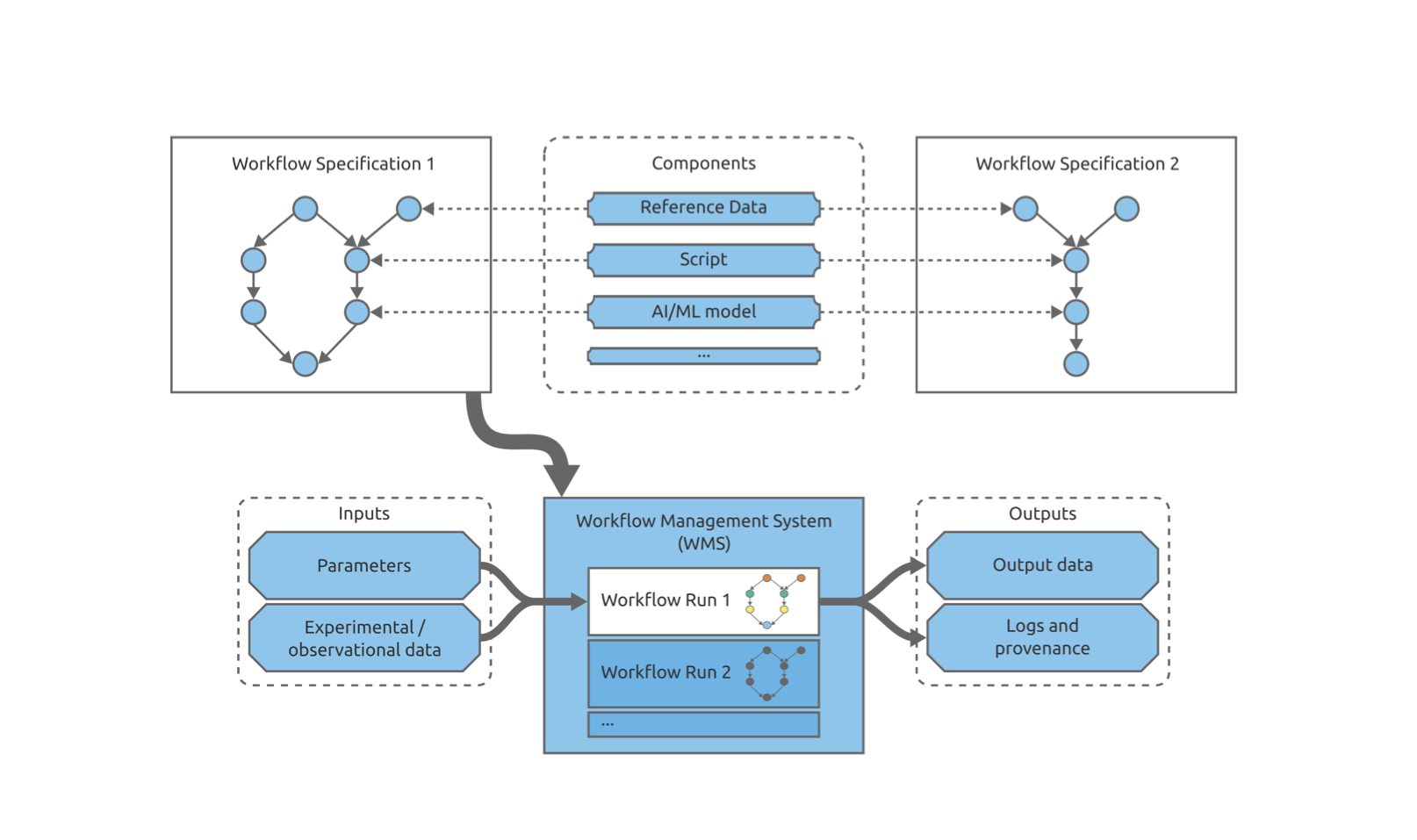FAIR Workflows: New Guidelines for Accessible and Reusable Research
- 10 Oct 2024
- Ulrike Träger
In their new paper, the Workflow Community Initiative (WCI) FAIR Workflows Working Group (WCI-FW) addresses a critical need in research: making computational workflows as discoverable and reusable as datasets. Published on Arxivand pending peer review, the paper outlines detailed recommendations aimed at enhancing the transparency, reproducibility, and cross-disciplinary adoption of workflows. By applying the FAIR (Findable, Accessible, Interoperable, Reusable) principles to workflows, WCI-FW - including GHGA team member Luiz Gadelha - seeks to enable researchers to locate relevant workflows, easily adapt them for their own needs, and streamline collaborative efforts. This promises to boost research efficiency significantly.
Key Recommendations:
- Findability: Implementing registries, persistent identifiers (PIDs), and metadata to improve workflow discoverability.
- Accessibility: Ensuring workflows are freely available with clear licensing and hosted in reliable repositories.
- Interoperability: Designing workflows to function seamlessly across different systems, formats, and standards.
- Reusability: Structuring workflows modularly with comprehensive documentation to simplify its (re-)usage with different settings.
The paper not only presents these recommendations but also includes thoughtful commentary on the discussions and decisions that shaped them. This reflective approach provides valuable guideposts for adoption while offering food for thought for future development and improvement. By inviting further discussion, the guidelines serve as a catalyst for enhancing scientific collaboration and laying a stronger foundation for transparent and reproducible research.






